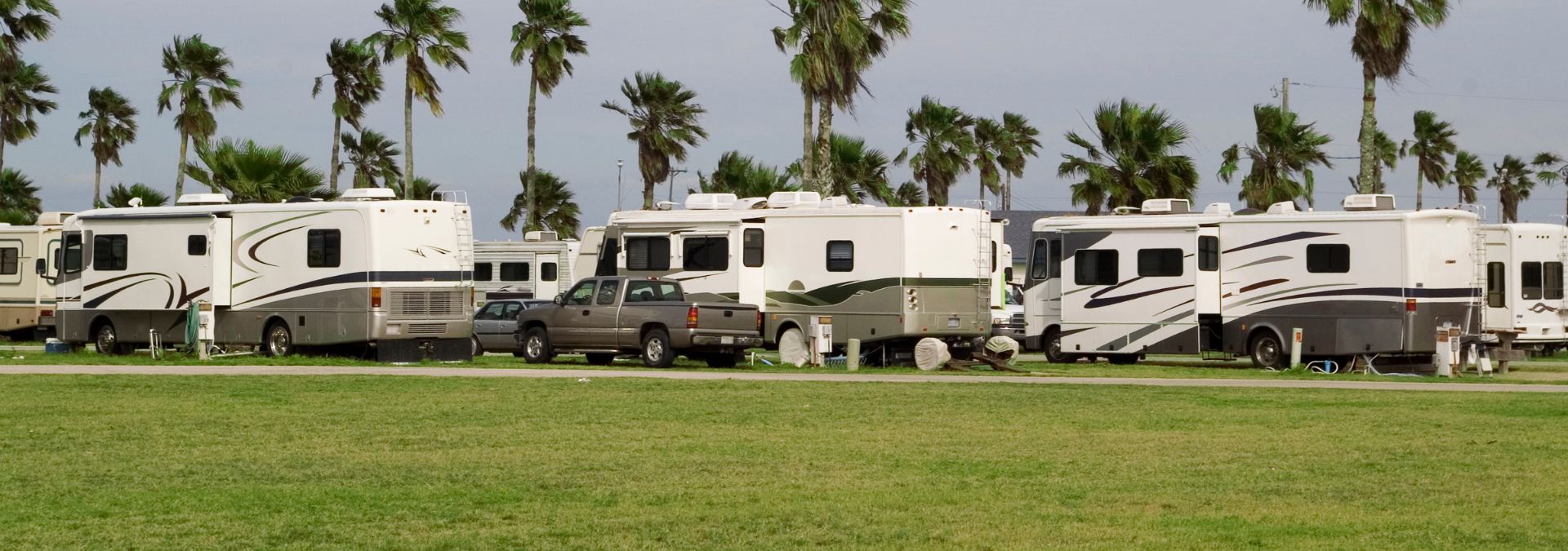The 10-Year Rule at RV Parks: Is It Enforced?

The “10-year rule” prohibits RVs older than 10 years from staying at certain campgrounds. Is this a common rule? Is it strictly enforced?…
The “10-year rule” is a hot topic in the RV community. The controversy lies over whether or not RV parks should discriminate based on RV age alone, especially since many older RVs are in great condition.
How common is the 10-year rule? Is it strictly enforced? Why do some campgrounds enforce this rule?
We will answer those questions and more.
What Is the 10-Year Rule at RV Parks?

Campgrounds with the 10-year rule prohibit RVs older than 10 years from staying at their campground. Some campgrounds have a 15-year rule to the same effect.
How Common Is the 10-Year Rule?
A strict 10-year rule is not as common as you might think, despite the many heated debates on social media. You'll most often see the rule adopted by upscale RV resorts, which are trying to maintain a luxurious image. Or by RV parks with long-term reservations of a month or more.
TOGO RV ran a poll of 94 RV parks concerning RV age limits. Here are their results:
- 3% have a strict 10-year rule in place
- 4% have a strict 15-year rule in place
- 78% have an “at our discretion” policy for older RVs
- 15% have no RV age policy in place
The “at our discretion” policy means they can turn you away if your older RV is not in good condition. The definition of “good condition” is up to them, but red flags include things like dents, broken windows, loose parts, window AC units, duct tape, and leaks.
So, if your RV is older than 10 years old but in good condition, then you'll likely be welcome at 93% of campgrounds. That number jumps up to 97% if your RV is less than 15 years old.
Is the 10-Year Rule Strictly Enforced?

Based on the poll by TOGO RV, only a small fraction of RV parks strictly enforce their 10-year rule or 15-year rule. Most allow exceptions if you provide photos of your RV in advance, proving it's in good condition.
If your RV is older than 10 years old, but you want to stay at a campground that has a 10-year rule, call them! Don't immediately dismiss the possibility of staying at the campground. Ask if it's strictly enforced and if you can send them photos for their approval.
Keep in mind, however, that if you send photos and arrive with an RV that isn't as good as your photos looked, they might still turn you away. So, be honest about the quality of your RV and the photos you send.
Plus, be nice! If you are asking them to make an exception for your older RV, don't attack them for having the rule in the first place. That just makes it easy for them to say sorry, not sorry. If you nicely explain why your RV is worth an exception, they'll be much more likely to oblige.
What If They Won't Make an Exception?
As frustrating as it may be, you should simply cross off RV parks with strict RV age restrictions from your list. If you have called them, kindly pleaded your case, and been denied, there's not much you can do beyond filing a complaint with them.
Perhaps if they get enough complaints, they will reconsider their policy. But, as far as it immediately concerns you, you're better off letting it go and moving on to the next RV park on your list.
Remember that 93-97% of parks will happily welcome you, and you'll probably prefer to support such parks anyway.
Why Do Some RV Parks Have a 10-Year Rule?

The most common reason RV parks have a 10-year rule is to uphold an upscale atmosphere at their higher-end RV resort. An RV resort typically has more manicured campsites and more amenities and structured activities than standard RV parks and campgrounds.
RV parks specializing in long-term stays, like a month or more, are also more likely to enforce the 10-year rule. The main reason is they want to make sure an RV is in good enough condition to be able to leave after their long-term stay! They don't want an RV to limp in and die in their park during their extended stay.
Arguments Against the 10-Year Rule
The most common and well-founded argument against RV age restrictions is that older doesn't always mean worse condition. Refurbished vintage Airstreams are the go-to example.
Even beyond Airstreams, there has been a very popular trend in recent years of refurbishing older RVs. These RV owners put a lot of work and money into reviving these RVs and understandably get upset if they are turned away without consideration.
And, of course, you can easily argue that newer RVs can be in terrible shape if they are not properly maintained. It only takes a couple of years of neglect to rundown a new RV.
Both of those arguments are why the vast majority of RV parks leave it to their own discretion. They are willing to prioritize quality over age if you are willing to provide proof.
What Makes RV Luxury Resorts in the U.S. Luxe?

All of this talk of upscale resorts reminds us of an article we wrote recently. While most luxury RV resorts offer upscale pools and some sort of sporting or recreational activity, they are not all the same.
Some offer fine dining, while others offer more unique activities, such as pickleball courts or movie theaters. Keep reading…
77 Must-Have RV Resort Amenities & RV Park Deal Breakers
A husband and wife team in our RV Lifestyle Facebook group is developing RV parks and asked our community of RVers what they look for (and avoid) in an RV resort.
They posted:
“Question: my husband and I are developing RV parks and want to know what you like and don't like about RV parks. Also what is the one thing that is a deal breaker for you? Thanks in advance for your input.”
They certainly came to the right place with their question because the post got more than 1,000 comments! If you want to see what real RVers consider must-haves and deal-breakers, keep reading...
